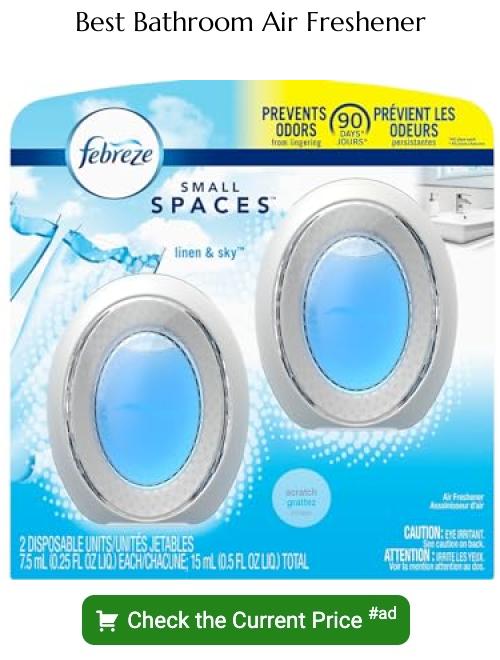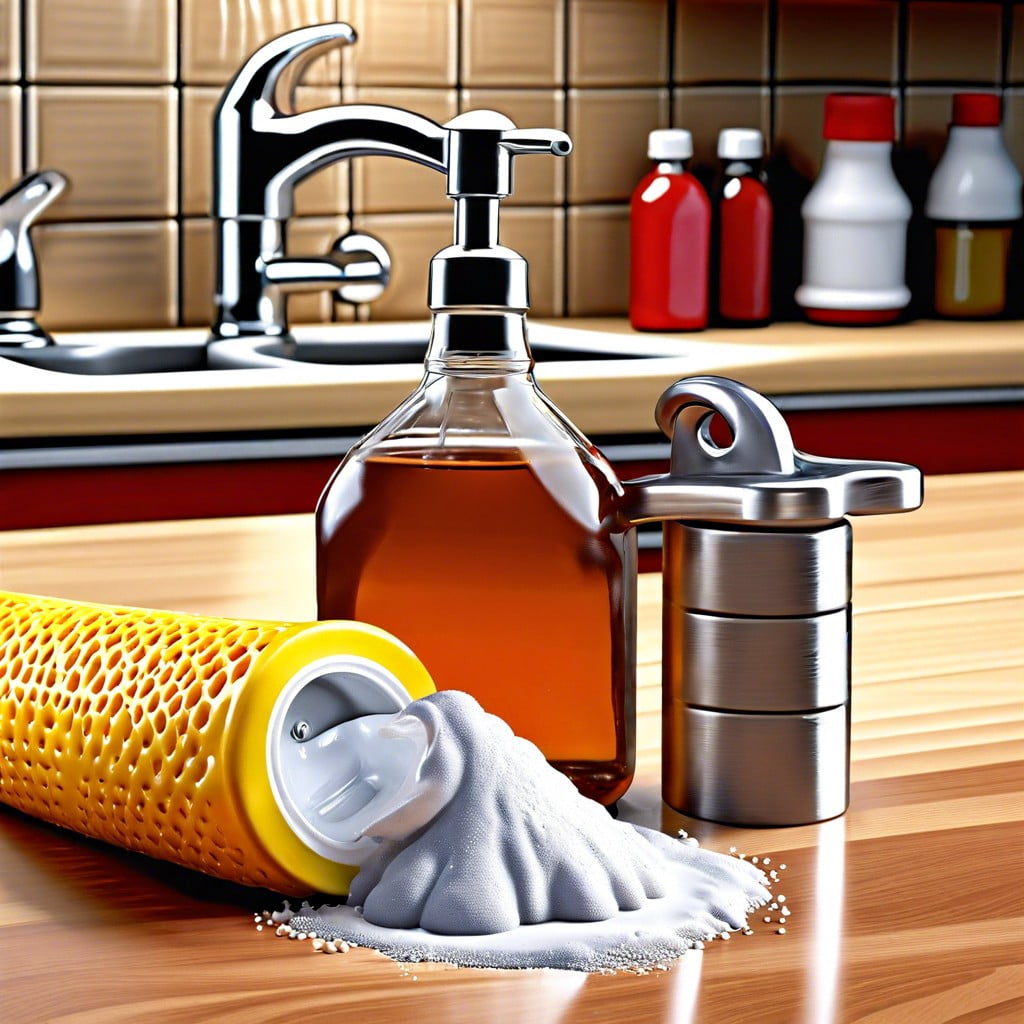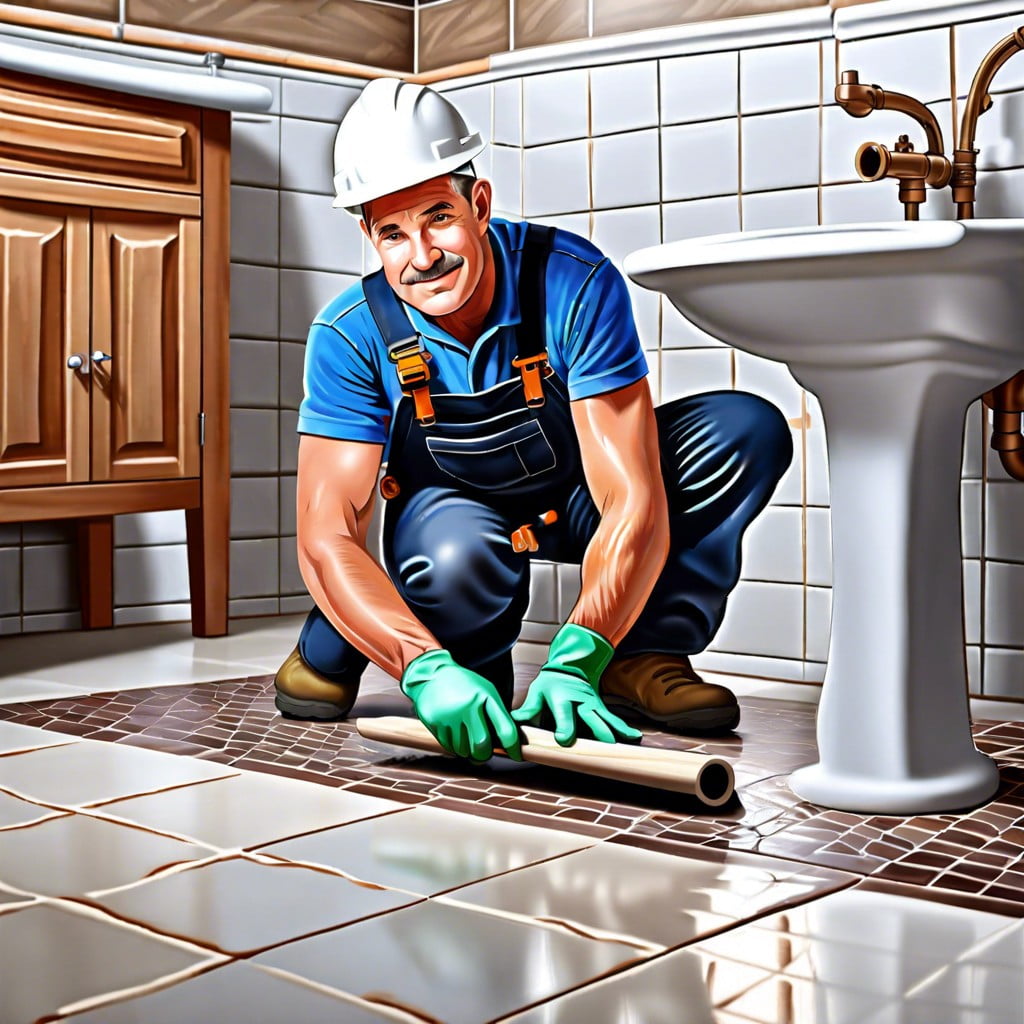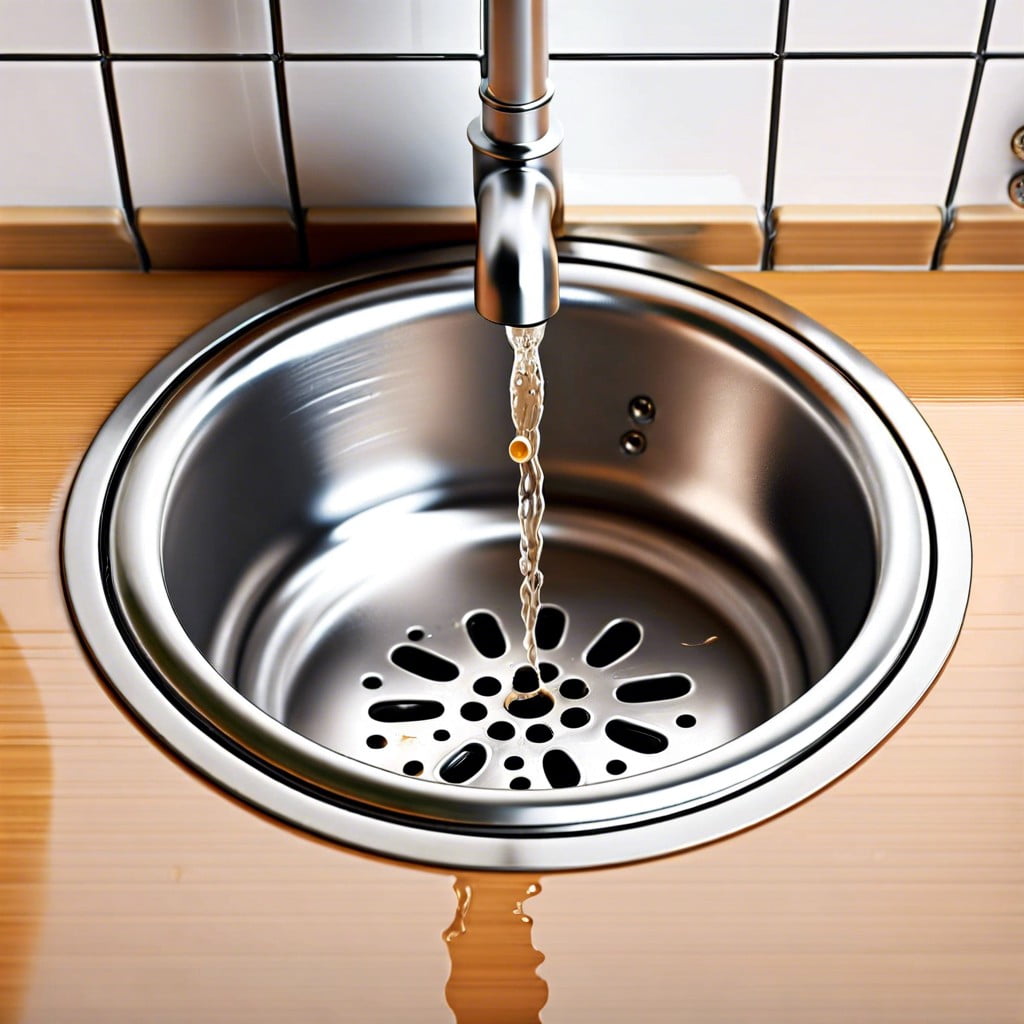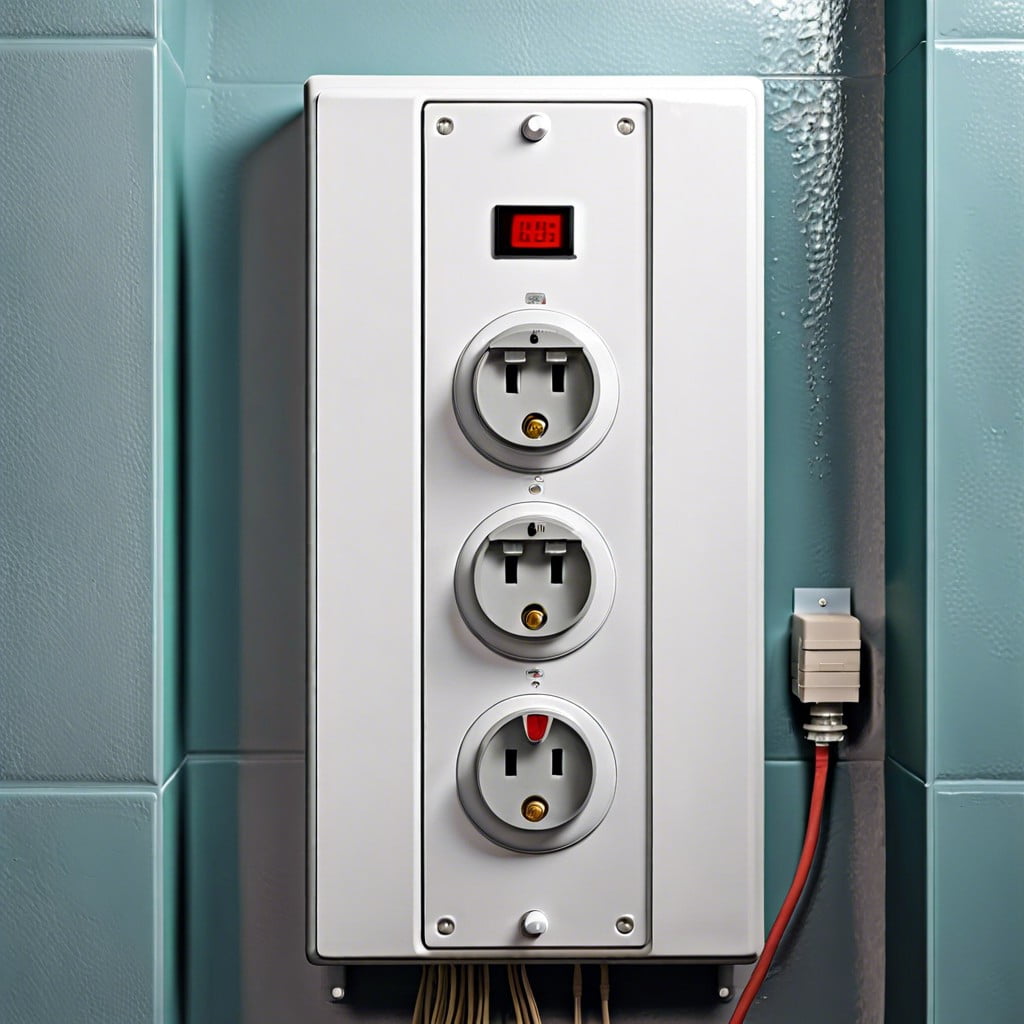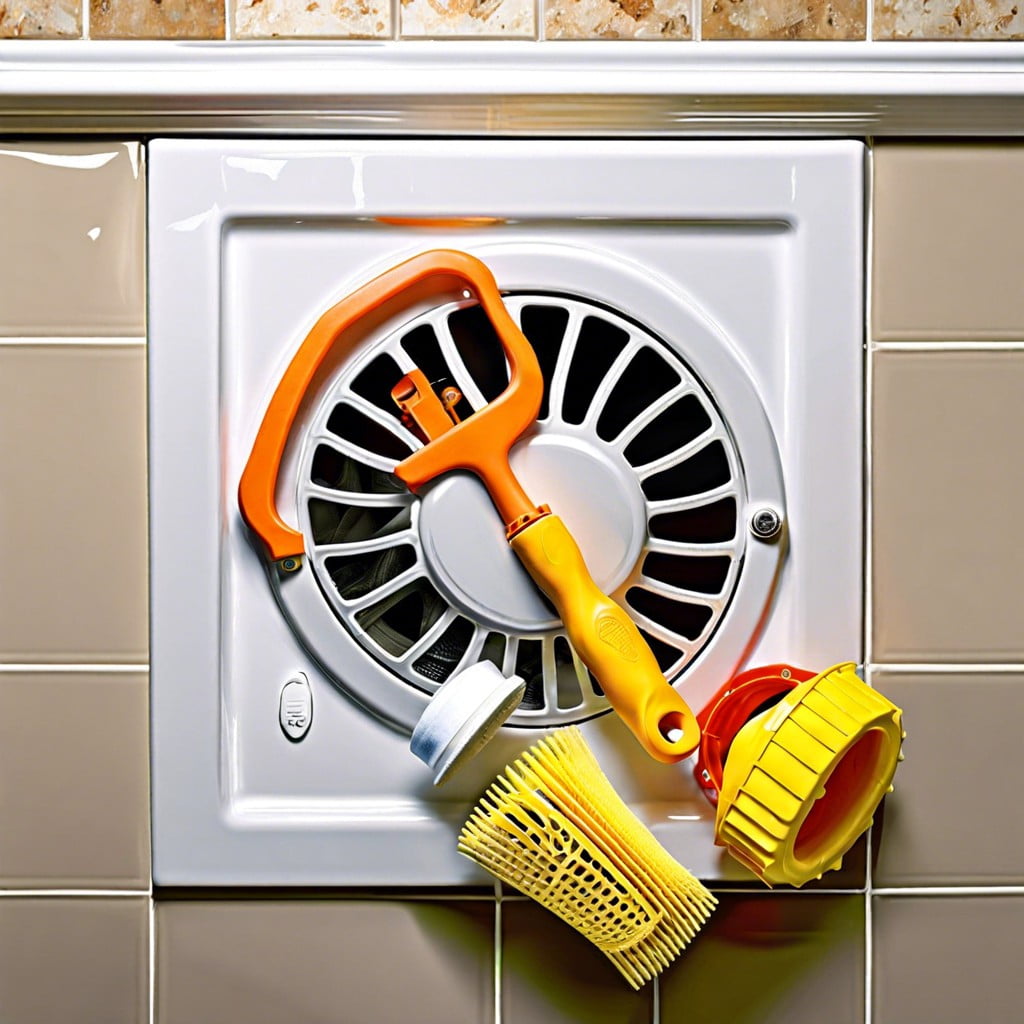Last updated on
Discover a plethora of actionable strategies to eliminate that persistent dirt smell in your bathroom, boosting your overall indoor air quality.
Key takeaways:
- Identify the source of dirt smell (floor drain, wet areas)
- Factors contributing to dirt odor (organic debris, lack of cleaning)
- Moisture and humidity issues (dehumidifier, regular cleaning)
- Mold and its relationship with musty smells (decrease moisture, clean surfaces)
- Sewer gas leakage and drainage problems (check P-trap, fix leaks)
Identifying the Source of Dirt Smell
When your bathroom emits a dirt-like odor, the first step is pinpointing its origin. Commonly overlooked places include the floor drain, overflows in sinks, or even a toilet that isn’t fully sealed to the floor.
Damp towels or rugs could also be culprits as they can harbor bacteria and mildew, releasing earthy scents when left unattended. Don’t dismiss less conspicuous spots either, such as grout lines where moisture accumulates over time, fostering an environment ripe for musty smells.
Inspect these areas closely for tell-tale signs of mold or lingering wetness, which often indicate where the odor is concentrated. Remember, tracking down the source is fundamental before you can proceed to tackle the issue effectively.
Common Factors Contributing to Dirt Odor
The scent of soil emanating from your bathroom can arise from a few likely suspects. One, organic debris, such as hair and skin cells, can accumulate in drains, providing the perfect breeding ground for bacteria that emit earthy odors. Second, a leaky toilet seal or a wax ring might allow water and waste to seep into the floor, yielding a fertile ground for musty smells. Remember, even infrequent use of fixtures can lead to stagnant water in P-traps, which ultimately produces this unpleasant-but all too familiar-dirt-like stench.
Lastly, a lack of regular cleaning can let soap scum and grime build-up, which not only contributes to the smell but also compromises the bathroom’s overall hygiene. Keep these factors in check, and you’re less likely to be faced with a bathroom that smells less than fresh.
Moisture and Humidity Issues
Excess humidity is a frequent troublemaker in bathrooms. It sets the stage for a variety of problems, including a persistent earthy smell. Without ample air circulation, moist conditions persist, welcoming odor-causing bacteria with open arms.
This damp environment also provides the perfect breeding ground for mold and mildew, both notorious for emitting a musty, dirt-like scent. Addressing these moisture issues is more than a matter of smell—it’s about maintaining a healthy bathroom ecosystem.
Use a dehumidifier to control humidity levels, or simply ensure regular use of an exhaust fan during and after showers. Quick tip: Keep a lookout for any signs of leaks, as these can also contribute to unnecessary moisture accumulation.
Regularly wiping down wet surfaces can combat the moisture build-up that leads to unpleasant odors.
Mold and Its Relationship With Musty Bathroom Smells
Understanding the link between mold and that persistent musty scent is crucial. Mold thrives in damp environments, which bathrooms often provide. It releases microbial volatile organic compounds (MVOCs), broadcasting that unmistakable earthy, damp smell.
Here’s what you need to know:
- Spores of mold are airborne; they land on wet surfaces and proliferate.
- These fungi feast on organic material found in many bathroom products, such as soap and shampoo.
- A telltale sign of mold is discolored patches on walls, ceilings, or around the shower.
- It’s not just unsightly; some mold types potentially impact health, particularly for those with asthma or allergies.
To tackle mold:
- Decrease moisture levels with fans or dehumidifiers.
- Regularly clean surfaces where mold typically forms.
- Consider anti-mold paints or primers in problem areas.
- Fix leaks promptly to avoid creating mold-friendly environments.
Eradicating mold promptly is key to maintaining a fresh, odor-free bathroom atmosphere.
Sewer Gas Leakage: A Possible Culprit
Sewer gas leakage often takes the blame when a dirt-like stench permeates your bathroom, and for good reason. This unpleasant aroma is not only a nuisance but also a telltale sign that the sanitary system might be compromised. The culprits? A dry P-trap, or that U-shaped pipe under the sink and floor drains, is a frequent offender. Without a barrier of water to block the gas, it freely rises into the bathroom.
Cracks in the toilet seal can act as another gateway for these gases. Regular inspection and maintenance can resolve these issues, ensuring that the sewer smell is banished. Additionally, loose-fitting drain pipes and inadequate venting can exacerbate the problem, effectively turning your bathroom into an echo chamber for the underground sewer symphony.
Understanding the mechanics behind this can aid in targeted solution-finding. So, before you go lighting candles or spraying air freshener, check these possible escape routes for sewer gases. It’s not just about the smell; it’s about ensuring a safe and healthy home environment.
Drainage Problems and Their Impact On Odor
Poor drainage doesn’t just slow down the flow of water; that lingering moisture creates an ideal breeding ground for odor-causing bacteria. If water persistently pools in the sink, tub, or on the bathroom floor, it can lead to a sour earthiness overtaking the room. This problem often stems from obstructions in the pipes, such as hair or soap scum, slowing down drainage and allowing bacteria to thrive.
Clogged pipes might not be visible, but they announce their presence through unpleasant smells. Bacteria, organic material, and sometimes even sewer gas can all contribute to these odors, which are then exacerbated by stagnant water. Investigate frequently overlooked areas like the overflow hole in the sink or build-up around the tub stopper.
Addressing these drainage issues promptly is key. Simple routine maintenance can be remarkably effective. Periodically flush drains with hot water or a vinegar-baking soda concoction to keep things moving smoothly. For more persistent problems, a plumber’s snake or a powerful drain cleaner can do the trick, ensuring your bathroom returns to being a sanctuary of cleanliness.
The Importance of Proper Ventilation
Neglecting ventilation is akin to inviting a symphony of unwanted odors into your bathroom. Let’s slice through the technical jargon and get straight to why airflow is your secret weapon against that persistent dirt smell:
- Air circulation is critical; stagnant air becomes a playground for must and mold.
- Opening a window or installing a fan isn’t just about fresh air; it’s a strategic move to bid farewell to odor-causing bacteria by giving them the boot.
- Don’t underestimate the power of a bathroom vent; it’s like an expressway for damp, smelly air to escape rather than linger.
- Consider the position of your vents; optimal placement means maximum odor extraction.
- Routine maintenance of vents and fans is non-negotiable; clogged systems are about as effective as a screen door on a submarine.
Emphasizing proper ventilation doesn’t merely combat the funky odor; it strikes at the core of maintaining a crisp and clean bathroom atmosphere.
Tips for Cleaning and Removing Biofilm
A persistent dirt-like smell in your bathroom may be signaling an unwelcome guest: biofilm. This slimy, often invisible layer of bacteria can cling to damp surfaces, such as shower curtains, sinks, and tiles.
To wrest control back from these odor-causing colonies, here are quick steps to follow:
- Use the Right Cleaning Agents: Go beyond your usual spray-and-wipe routine by choosing an enzymatic cleaner, which breaks down the organic matter that biofilm feeds on. For a DIY approach, white vinegar and baking soda can create an effective cleaning solution.
- Get Scrubbing: Physical removal is key. Use a stiff brush to scrub the surfaces where biofilm resides. Focus on grout lines, faucet bases, and around the drain where it tends to thrive.
- Don’t Forget the Drain: Pour a mixture of baking soda followed by white vinegar down the drain to kill bacteria and dislodge buildup. After a few minutes, flush with boiling water to clear out the remnants.
- Dry Surfaces Accordingly: After scrubbing, make sure to thoroughly dry the area. Biofilm loves moisture, so keeping surfaces dry is an effective deterrent.
- Maintain Consistency in Cleaning: Regular cleaning reduces biofilm accumulation. Incorporate this regimen into your weekly cleaning schedule to keep that dirt smell at bay.
Implementing these tips can make a significant impact on the freshness of your bathroom. Stay diligent, and you’ll keep biofilm—and its resulting odors—in check.
Using Natural Remedies to Counteract Dirt Smell
Discover the power of nature’s own solutions when tackling that unwelcome earthy aroma in your bathroom. Baking soda, for instance, acts like a sponge for bad smells – sprinkle it around, let it sit, then sweep it away to lift odors.
Vinegar is a cleaning superhero, even against the toughest grout grimaces; its acidic nature breaks down dirt scents on a molecular level.
Want an aromatic bathroom without artificial scents? Turn to essential oils such as eucalyptus, lemon, or tea tree oil. A few drops in strategic spots can transform your bathroom into a spa-like oasis.
Lastly, natural potpourri offers a dual punch – it’s visually appealing and it releases delightful, earthy fragrances that can help smother any lingering odors. Remember, nature’s remedies are not just effective, they often come with the added benefit of being eco-friendly and gentle on your space.
How to Prevent Future Musty Odors
Preventing musty odors from returning to your bathroom involves consistent maintenance and proactive measures. Start with a regular cleaning schedule; use a vinegar and water solution for a natural approach or opt for specialized bathroom cleaners to deter mold growth. Ensure you’re also keeping your drains clear with a mixture of baking soda and vinegar followed by hot water to combat potential biofilm accumulation.
Don’t underestimate the power of ventilation. After showers, leave the door open and run the fan to reduce humidity levels. Additionally, consider investing in a dehumidifier to keep the moisture in check, especially in bathrooms with poor natural ventilation.
Another key strategy is to fix leaks promptly. Moisture from leaking pipes or fixtures offers a perfect breeding ground for musty odors. Lastly, integrate odor-neutralizing plants or products that absorb excessive moisture, such as activated charcoal or silica gel packs, as they can significantly aid in keeping the air fresh and clean.
FAQ
Why does my bathroom have an earthy smell?
The earthy smell in your bathroom is likely due to mold growth, which emits an unmistakably unpleasant odor.
Why does my bathroom sink smell earthy?
Your bathroom sink exudes an earthy smell due to the potential growth of mold and mildew within the pipes, enabled by the consistent interaction with water, and the dark and often warm conditions.
How do I get rid of the smell of dirt in my bathroom?
Adopting odor absorbers such as charcoal briquettes, baking soda, or kitty litter, which require monthly replacement, or using natural fresheners like essential oils or citrus peels can effectively eliminate the smell of dirt in your bathroom.
Why does my drain smell like dirt?
A drain typically smells like dirt due to the buildup of dirt, grime, hair, soap scum, and other debris, which can inhibit the free movement of water and subsequently produce a noticeable odor.
What causes the soil-like odor in bathrooms and how can it be prevented?
The soil-like odor in bathrooms is often caused by sewer gas leaks or dampness, and can be prevented via regular cleaning, proper ventilation and timely plumbing repairs.
Is it normal for my shower drain to emit a dirt-like smell and what can it potentially mean for my plumbing?
Absolutely, a dirt-like smell from your shower drain is not normal, and could indicate an issue with your plumbing, such as a clog or a broken seal.
Are there any specific bathroom materials or products that might be contributing to an earthy smell?
Yes, natural materials like wood, hemp, and stone in bathroom decor can contribute to an earthy smell.
Recap
